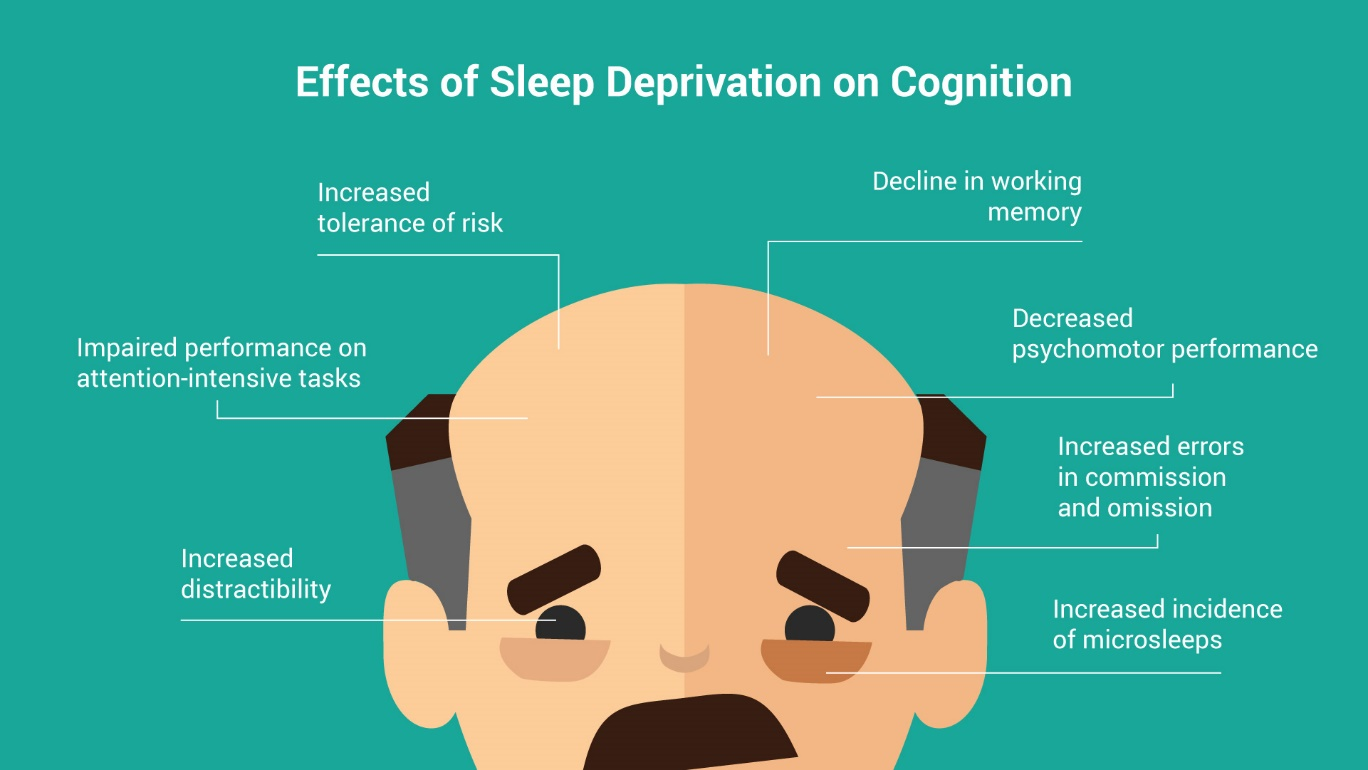You may have heard how important sleep is to your metabolism, weight, and general outlook on life. But did you know that there are links between the amount of sleep you get and your memory? It’s something more people need to know about, so in the following article, we will be discussing:
30-Second Summary
- An overview of the importance of sleep and how it can affect the brain.
- Why not getting enough sleep can affect memory?
- The importance of a good night’s sleep in your daily life.
- Some supplements that may help you get a good night’s rest.
- The 5 ways that sleep deprivation affects the brain.
An Overview Of Sleep And Why The Brain Needs It
When we sleep, our brain is basically regenerating itself. It is a fact that getting enough sleep is required for many cognitive functions such as learning and focus. A simple healthy lifestyle may not mean very much to your cognitive health if you are not getting enough sleep.
So how much is enough? Experts suggest that healthy adults get between 7 and 9 hours of sleep a night. It is the recommended amount to be able to focus the next day and perform other essential cognitive functions.
Not only is getting enough sleep important in the short term but there is an increasing body of research that suggests that getting enough sleep is also beneficial for long-term cognitive function. Even the best memory pills won’t work if you are not getting enough sleep.
Still, for some, getting 7-9 hours of sleep per night is a serious challenge. When you can’t calm your mind and body, when you have stresses that keep you awake, if your body is keeping you awake, or if you are simply a light sleeper, you may struggle with getting a healthy amount of sleep.
It is a quite common problem. Did you know that up to 50% of the American population suffers from symptoms of insomnia? It’s a rampant problem, but the important takeaway here is that the brain needs sleep.
Why Is Sleep Important?
When you sleep, your brain goes through 4-6 stages of activity. While it is unknown why sleep involves a stepped process like this, it is believed that the process helps facilitate mental recovery. Furthermore, sleep has been increasingly tied to learning.
Some new amazing findings seem to suggest that while we sleep, our brain is essentially defragmenting things that we learned in our waking hours and decoding them so that we understand the concepts more deeply and they are committed to memory more firmly.
What Goes On In Your Sleep?
Sleep has been called a primary biological need. No animal can live or function without it. But what happens when we sleep? When you calm your mind and body and are able to slip into a deep, restful state of sleep, your brain is still active.
In the first stages of sleep, your brain impulses are slowed down considerably. In the latter stages of sleep, which include REM or Rapid Eye Movement, your brain impulses pick up again to levels comparable to when you are awake.
It is when dreams occur. The body and brain go through different changes of activity during sleep. For our brains, sleep signals certain chemical changes that are executed in order to allow the body and brain to rest. In some cases, some chemical changes are inhibited as well.
Sleep Deprivation: 5 Ways It Affects The Brain
A simple healthy lifestyle cannot be achieved if you are sleep-deprived. Sleep deprivation can have a severe impact on your brain. Here are 5 ways how:
- Compromised Brain Cells – While it has not been confirmed in humans, animal studies suggest that sleep deprivation can actually kill brain cells.
- Increased Risk for Depression – Serious sleep deprivation can have devastating effects on your outlook on life and might lead to depression. In addition, sleep deprivation has been linked to certain forms of psychosis.
- Sleep Anxiety – Some people dread even trying to sleep for fear that they won’t be able to. It is called sleep anxiety and is similar to performance anxiety. Sleep deprivation might easily lead to sleep anxiety, which makes it much worse to recover and develop a healthy sleep schedule.
- Compromised Neurotransmitters – When we sleep, our neurons and neurotransmitters regenerate themselves. So it is thought that with long-term sleep deprivation, neurotransmitters may help break down over time and have more difficulty communicating with each other.
- Dementia – It is also believed that chronic insomnia and prolonged cycles of sleep deprivation are early markers of severe cognitive degeneration, including dementia and Alzheimer’s disease. In extreme cases like these, even the best memory pills wouldn’t be able to help.
A Word On Supplements
When you are taking quality supplements in early adulthood, you may help preserve your precious cognitive functions. However, scientists and researchers are still debating the validity of some nutrients, which are common in supplements and are thought to benefit the brain.
Neuriva is one such supplement that claims to help enhance focus and sharpened memory. Many people have used it and claim that it does work. Still, it is always best to do your research on these products.
While they may provide your brain with essential nutrients, it needs to stay sharp. Many also lack extensive research. It is strongly recommended to talk to your doctor about Neuriva or any other nootropic supplement you are considering taking.
Closing Thoughts
Study after study has pointed to the importance of exercise to the brain and body, as well. An active lifestyle will help you sleep better at night, and when you are sleeping better, your brain is better. It’s evident that sleep has a significant effect on the way your brain works.
As with nearly everything in life, eating well, staying away from unhealthy habits, and getting enough sleep are good formulas for keeping your brain sharp.





